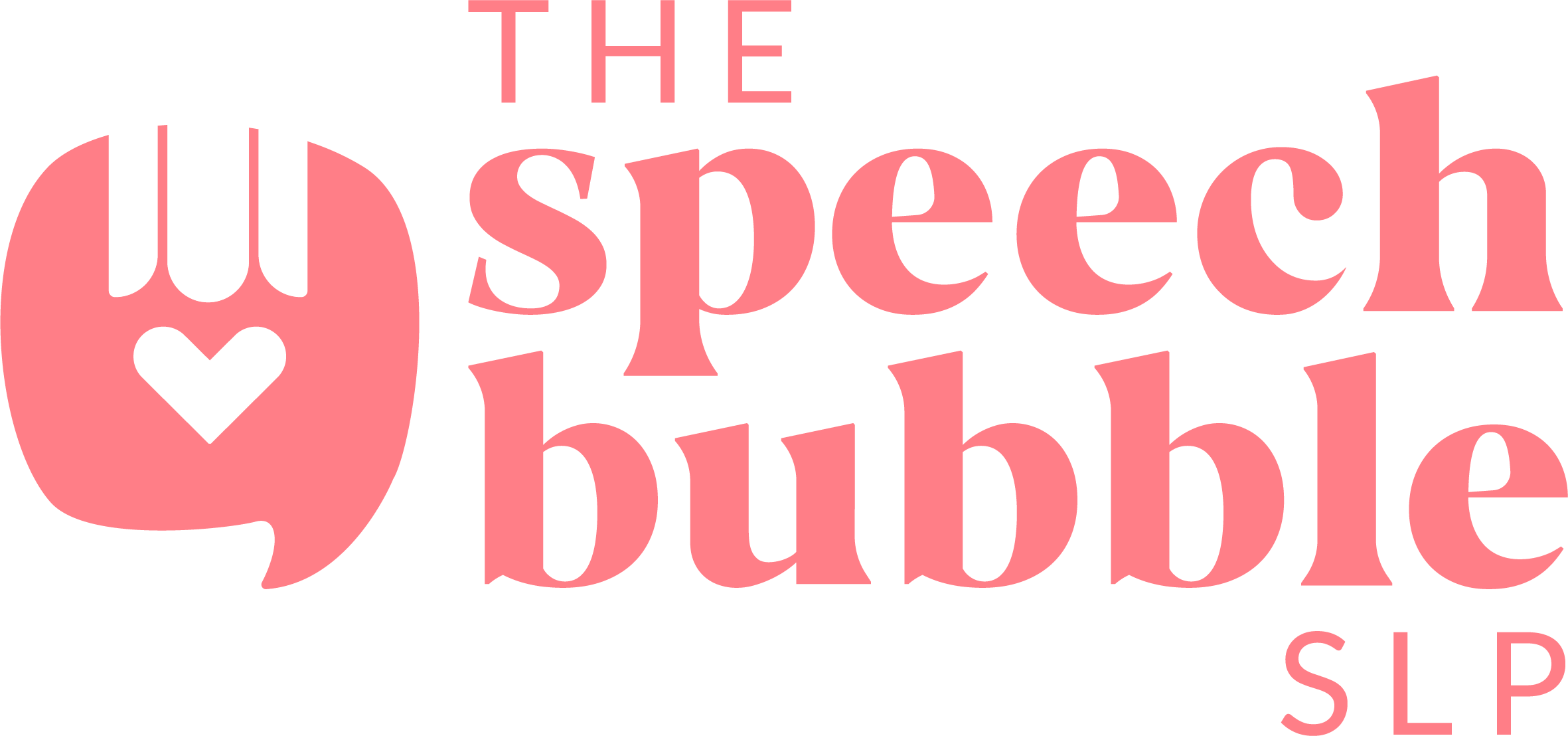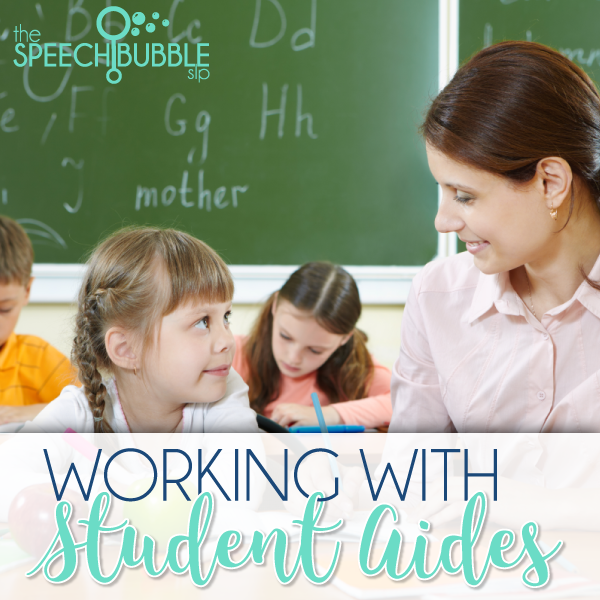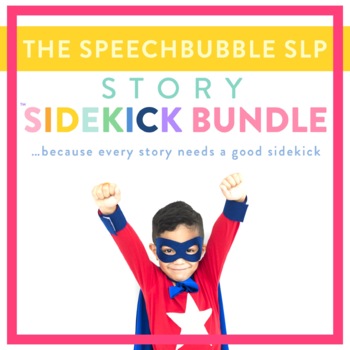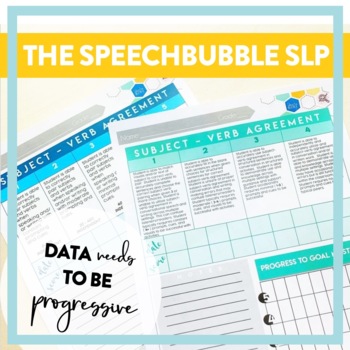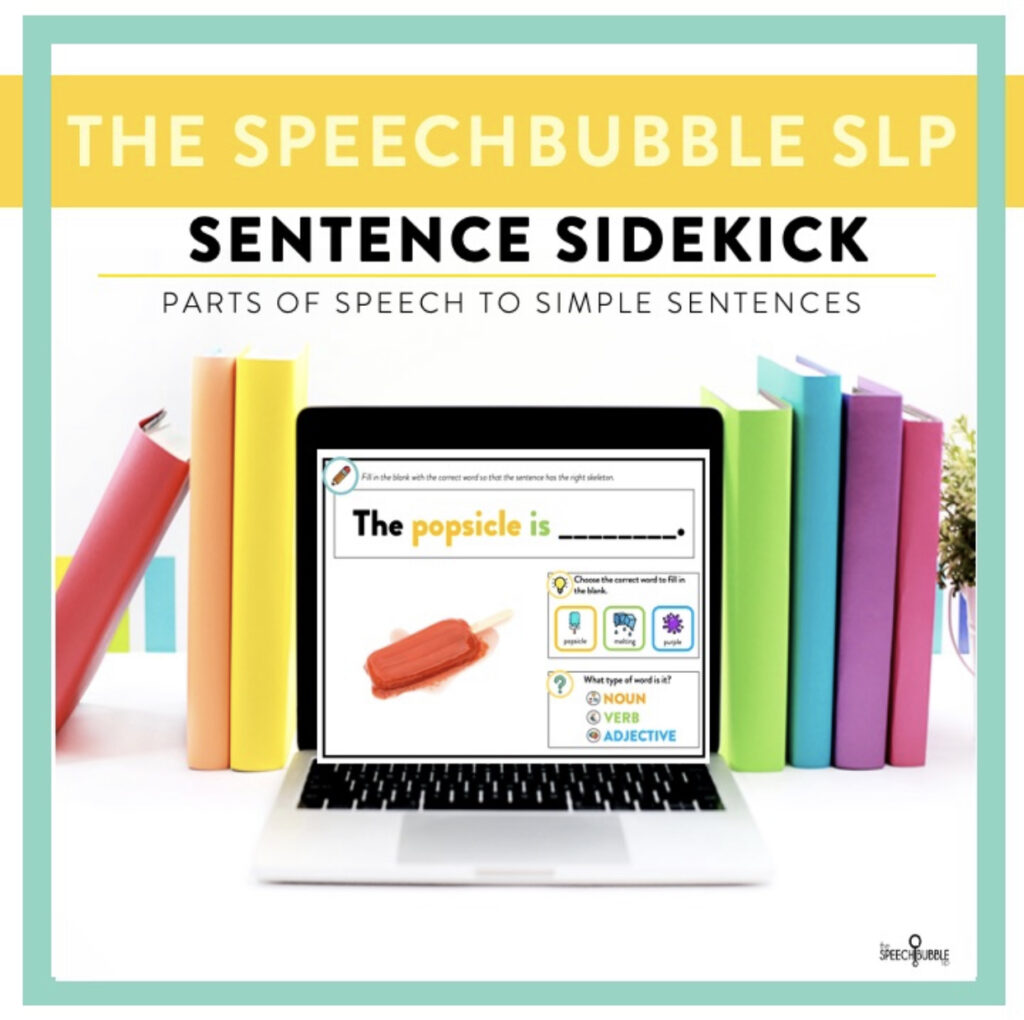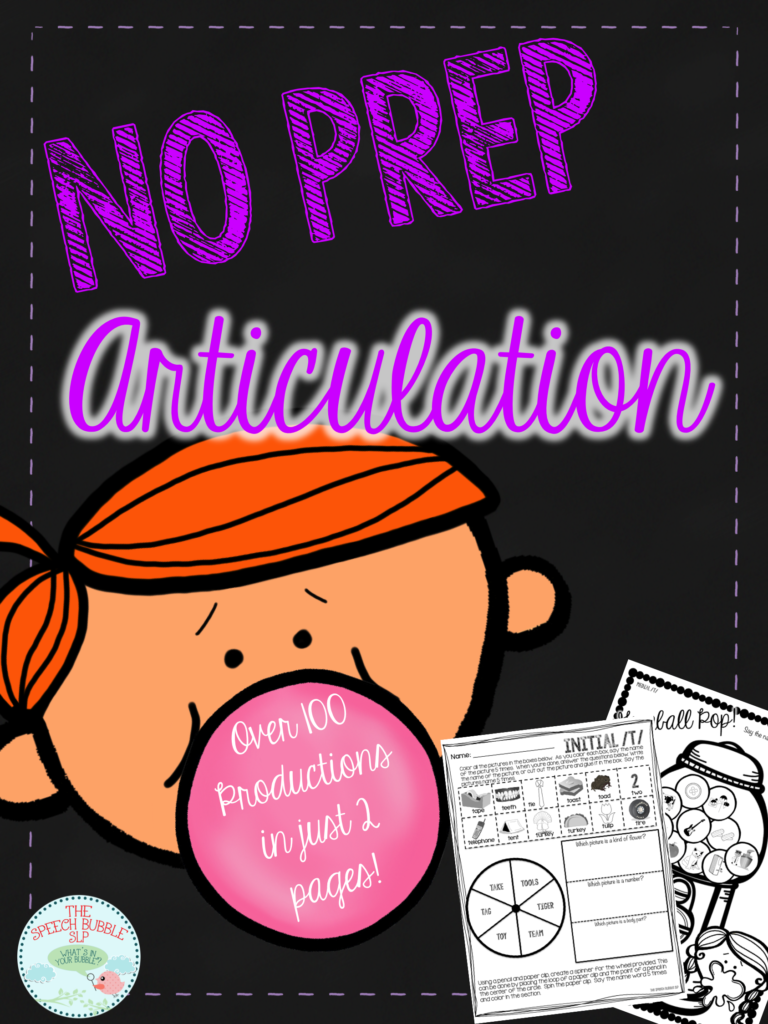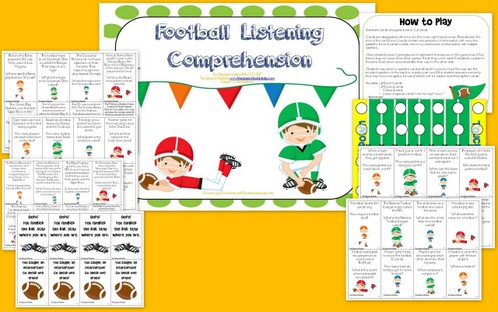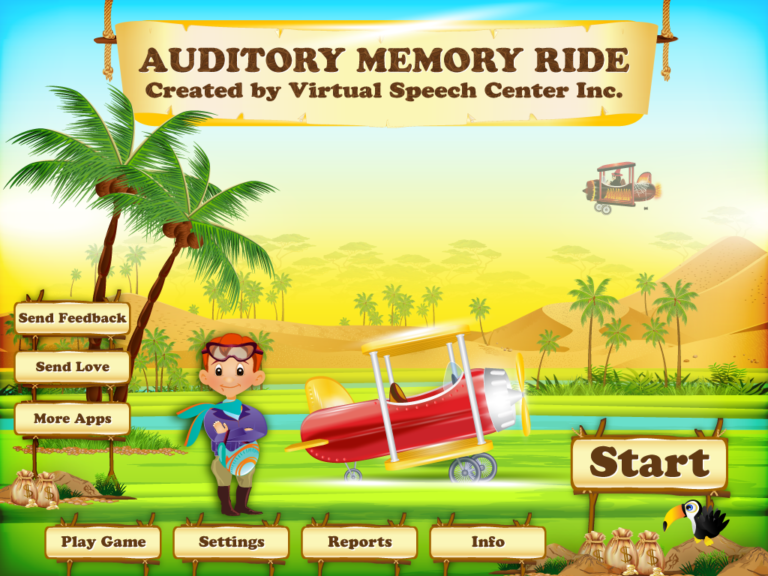This year I had several students who had one-on-one or part-time aides. These wonderful people help to support the student’s needs during their school day. Some offer a heavy amount of support such as making sure the student gets from class to class ‘ok’, sitting with them and helping with them at lunch, while others are there to offer more gentle reminders to use strategies or stay on task. These great people can also be an important resource to utilize for therapy.
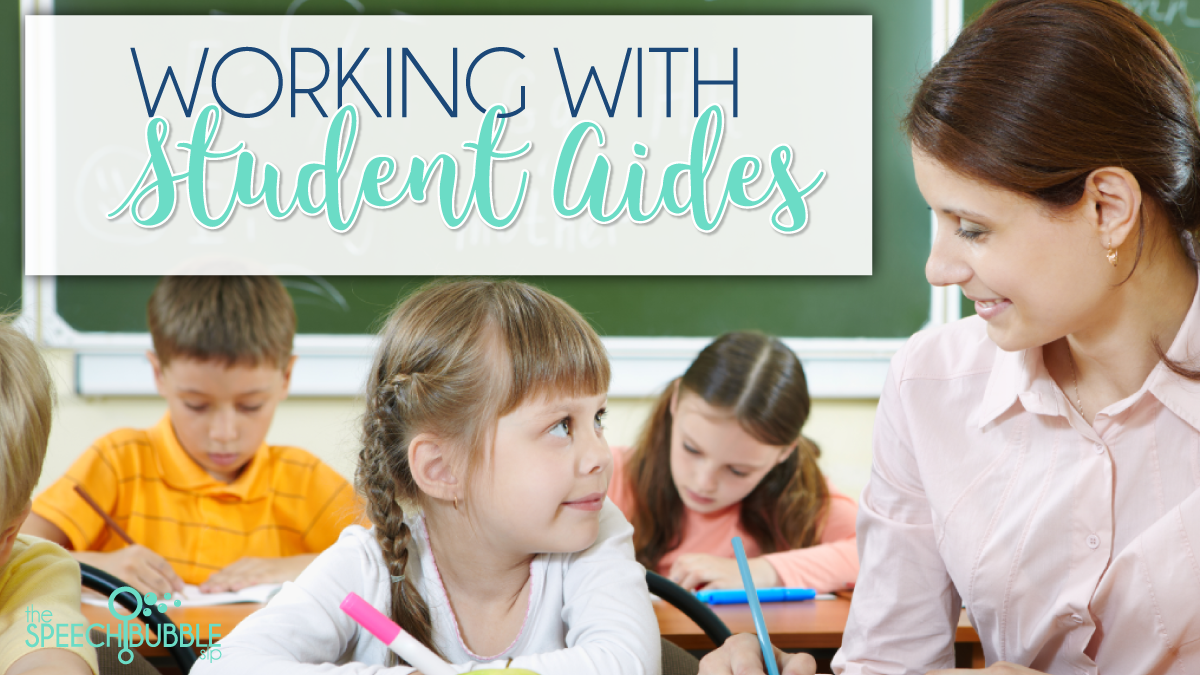
Typically I will touch base my student’s aide everyday to check in on how they are doing. Sometimes there is nothing to report and other times I may get the heads up that is it a rough day or that they are not using their speech strategies or tools in class like we have been working on. This is information can be critical in adjusting my sessions and targets.
So how can you include a student’s aide in speech therapy?
– First establish a rapport. They work very closely with the same students you do, so you already have something in common 🙂
– Make them part of your routine ( if you can ). Check in with them once a day on your student. I have found sometimes that some extra insight is needed if my student is having a rough day and the teacher and aide are getting a bit overwhelmed. Also, they may some information about the student’s home life that may impact their school day. This can be especially helpful if you observe your student to be a bit ‘off ‘ and cannot pinpoint the reason.
– Have them join you in speech therapy. This does not have to be every session, but if there is a skill you are working on for carryover, whether it be /r/ or initiating a greeting, a student’s aide can help to facilitate these skills in the classroom once they understand what the student’s target is.
– Get their opinion. While we know our students in the speech room and hallways, their aides are with them a majority of the day. If you are stumped about how to approach a goal or what to try because you have used all your ideas and gotten nada, ask their opinion. A student may have already been demonstrating a behavior that you can shape into meeting your goal or developed a new interest that you can use in therapy to motivate them.
Now just some bits of information that the aides in my building shared with me :
– Do not assume they do not know how to handle a tough kiddo. Many aides are retired professionals or people taking time off from school who have degrees and knowledge that can be helpful.
– If you do not see eye to on a matter regarding your student, talk to them about it. They want what is best for the student just as much as you do.
How do you work with your student’s aides?
